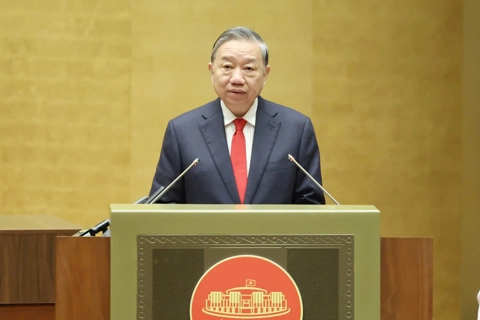Helpful guidance to personal transactions not subject to taxation
THE HANOI TIMES — A common misunderstanding is that all money entering a personal account are subject to tax, which has led to the spread of misinformation and public concern. Let The Hanoi Times provides a better understanding of this issue.
According to the Law on Tax Administration, not all amount of money transferred into an individual’s account necessarily incur tax obligations. Therefore, individuals must carefully review and understand the following cases in which an amount of money entering a personal account is not taxable.
1/ Loans or borrowings between relatives, siblings, friends, or colleagues, as well as simple transfers between spouses, are considered civil transactions, which do not constitute taxable income for the recipient and are not subject to taxation.
2/ Amount of money transferred into a personal account as part of a bank loan settlement or renewal, which is then used for purchases or other purposes, does not incur tax liabilities either.
Note: The individual must retain adequate documentation demonstrating that the transaction is a bank loan settlement and that no underlying sale of goods is involved.
3/ Remittances sent by family members who are employed or engaged in business overseas are also not taxable. These are classified as overseas remittances and are tax-exempt.
Recommendation: To ensure transparency in foreign exchange management, such remittances should be processed through licensed Vietnamese banking institutions.
4/ Amount of money received or disbursed on behalf of a store or company by a delivery person, gas station employee, or shipper and then transferred to the employer’s or principal’s account is not considered the individual’s income and is thus not taxable.
Recommendation: Individuals in this situation should obtain written authorization from the company or business owner that clearly states they are collecting customer payments on the company's behalf. This document may serve as valid proof in the event of a tax audit.
5/ Transactions involving cash withdrawals or fund transfers, such as those performed by gold shop owners or small retailers offering cash withdrawal services via bank transfers, may involve large inflows and outflows. If the account holder charges a fee (e.g., charging US$4 for a $400 withdrawal), tax will be imposed on the fee amount.
According to tax regulations, service income of this type is subject to a 7% tax rate. However, if an individual facilitates fund transfers or cash withdrawals without charging a fee and derives no income, no tax obligation arises.
Caution: Under current law, providing transfer or withdrawal services is a conditional business activity legally restricted to licensed credit institutions, such as banks. Individuals are not permitted to offer these services.
6/ Whether proceeds from the sale of real estate transferred into a personal account are taxable depends on the specific case.
If the sale price stated in the notarized contract reflects the actual transaction value, then the applicable taxes are deemed paid. However, if the declared price is significantly lower than the actual amount received, tax risks arise, and the tax authority may investigate and assess taxes based on the actual market value.
On the other hand, many individuals residing in Vietnam who are employed by multinationals, such as IT engineers, online workers, and freelancers, may receive income from abroad without taxes being withheld at the source. In these cases, individuals must self-declare and self-remit the corresponding taxes in Vietnam.
Finally, interest income from informal lending arrangements between individuals (e.g., via rotating savings and credit associations or "hui/ho") is not taxable. However, when an individual lends to a company and earns interest, that income is subject to a 5% tax rate.












